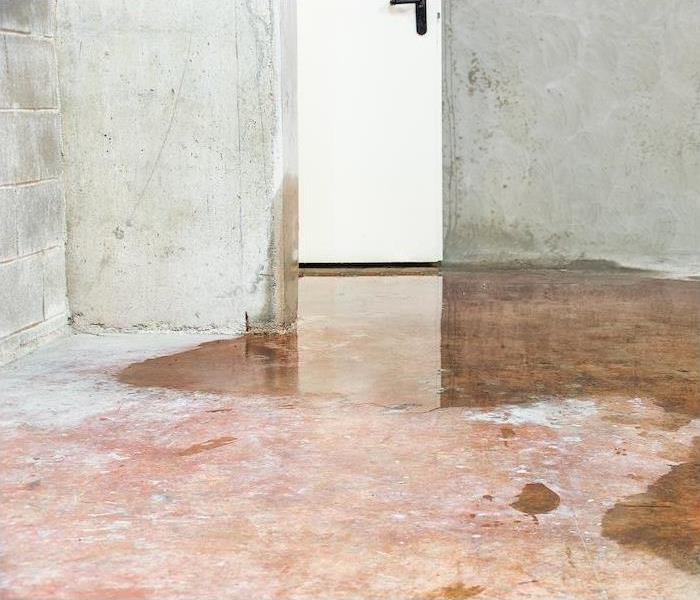Constant Pressure Causes Moisture to Saturate Your Basement | SERVPRO® of Cedar Mill/Oak Hills
12/29/2021 (Permalink)
 If you have any damage from moisture, regardless of the cause, SERVPRO of Cedar Mill/Oak Hills are here to help.
If you have any damage from moisture, regardless of the cause, SERVPRO of Cedar Mill/Oak Hills are here to help.
A leaky basement is something no homeowner wants to deal with. It can cause dampness and moisture to settle in (plus that yucky smell), it can damage furniture or items you may be storing in the basement, and it can ultimately damage your home’s foundation—something you definitely want no part of.
Basement leaks are very common—odds are high that you’ll encounter one in the lifetime of your home due to one cause or another. There are several major causes of water leaks into the basement, but today we’re going to focus specifically on one: hydrostatic pressure.
What Is Hydrostatic Pressure?
First of all, did you know that the air around you actually presses down on you at around 15 pounds per square inch, but you don’t notice it because the fluid in your body is pressing back?
In the same way, but with a more intense degree of pressure, water presses on your home’s foundation and basement walls. The soil around your home is generally pretty loose, and it allows rainfall to soak in. It’s good for the soil, the plants, the planet—but it can mean a rough life for your basement, which is constantly fighting back against the 30-some-odd pounds of pressure per square inch applied to it by excess moisture in the soil.
This is the practical explanation of hydrostatic pressure for our context—if you want more science, click the link and learn away.
Why Does It Matter?
The pressure applied to your foundation over time can eventually overcome your walls’ capacity to withstand it—especially since the cinder blocks most basements are founded on are porous by nature. This means that moisture may enter your home through the basement, especially after heavy rain saturates the soil.
How Do I Know if Moisture Is Invading My Basement?
Your first clue of water damage due to hydrostatic pressure is probably going to be that musty smell.
If that smell is in the air, that means moisture has already settled in and mold has begun growing. If left unchecked, this could eventually lead to foundation cracking and potential major home repair.
If you realize your home or basement has been damaged by moisture, regardless of the cause, SERVPRO of Cedar Mill/Oak Hills is here to help. Our expert techs have the tools and skills to mediate the damage and restore your home, so don’t hesitate to click or call today.






 24/7 Emergency Service
24/7 Emergency Service